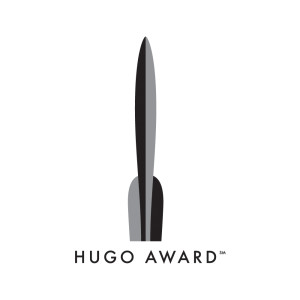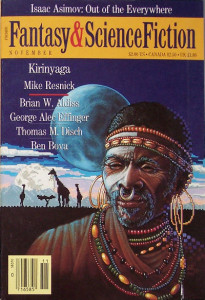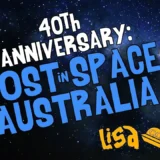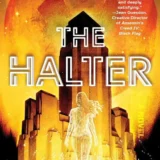 Let this serve as your reminder that final ballots for the 2013 Hugo Awards are due today. (07/31/13) With that in mind, I bring you my continued parade of Hugo Award statistics from across the years. This latest installment includes statistics from the other three fiction categories: Best Short Story, Best Novelette, and Best Novella. Once again, I have included the Retro Hugos in my statistics. (Retro Hugos are those awarded 50, 75, or 100 years after a year a WorldCon was held and no Hugos were given. So far only three years have been permitted Retro Hugos: 1946, 1951, and 1954.)
Let this serve as your reminder that final ballots for the 2013 Hugo Awards are due today. (07/31/13) With that in mind, I bring you my continued parade of Hugo Award statistics from across the years. This latest installment includes statistics from the other three fiction categories: Best Short Story, Best Novelette, and Best Novella. Once again, I have included the Retro Hugos in my statistics. (Retro Hugos are those awarded 50, 75, or 100 years after a year a WorldCon was held and no Hugos were given. So far only three years have been permitted Retro Hugos: 1946, 1951, and 1954.)
The short story award began in 1955 two years after the Best Novel Hugo was first presented. Originally the award was titled the Best Short Fiction award. Later distinctions were drawn creating the officially named short story award. Currently the length is defined as works less than 7,500 words.
The short story award has had 300 nominations since it began. (Not including the years only the winner was recorded. This does include co-authors as two separate nominations.) This number represents 153 different people, but only 45 different winners (61 Hugos awarded). So the simple math is that only 29% of the people nominated for the award have ever won it.
- Ten authors have won multiple awards. Combined they have won 26 awards or 42% of all awards.
- None of this year’s candidates have won more than one award in this category. Ken Liu won the award last year and has the opportunity to crack the list of multiple winners.
- Only three times in history has an author won back to back awards: Harlan Ellison 1968/1969, Connie Willis 1993/1994, and Michael Swanwick 1999/2000.
- Authors named Mike/Michael have been nominated 41 times or 14% of all nominations.
- Only Michael Swanwick has had three stories nominated in the same year, 1999. One of those three won the award that year.
List of Authors with Multiple Short Story Nominations
- Mike Resnick (18 nominations)
- Michael Swanwick (14)
- Michael A. Burstein, Larry Niven, Harlan Ellison (7)
- Ursula K. Le Guin, Fritz Leiber, Connie Willis (6)
- Theodore Sturgeon, Terry Bisson, Bruce Sterling (5)
- Robert Silverberg, Robert Reed, Kij Johnson, Alfred Bester (4)
- Stephen Baxter, Roger Zelazny, R. A. Lafferty, Poul Anderson, Philip José Farmer, Martha Soukup, Joe Haldeman, James Tiptree, Jr., James Patrick Kelly, Howard Waldrop, Geoffrey A. Landis, Frederik Pohl, Damon Knight, Clifford D. Simak (3)
- William F. Wu, Spider Robinson, Samuel R. Delany, Robert J. Sawyer, Rick Raphael, Raymond F. Jones, Orson Scott Card, Nicholas A. DiChario, Neil Gaiman, Michael Bishop, Mary Robinette Kowal, Ken Liu, Kate Wilhelm, Karen Joy Fowler, John Varley, John Crowley, Jeff Duntemann, James White, Gregory Benford, Gordon R. Dickson, George R. R. Martin, George Alec Effinger, Gene Wolfe, Eileen Gunn, Edward Bryant, David D. Levine, David Brin, C. M. Kornbluth, Brian Aldiss, Arthur C. Clarke (2)
Top Ten Most Hugo Awards for Best Short Story
- Harlan Ellison (4 awards)
- Mike Resnick (3)
- Michael Swanwick (3)
- Larry Niven (3)
- Connie Willis (3)
- Poul Anderson (2)
- Joe Haldeman (2)
- Geoffrey A. Landis (2)
- Frederik Pohl (2)
- Arthur C. Clarke (2)
The novelette had more of a rollercoaster relationship with the Hugos. First awarded in 1955, the award came and went, before becoming a permanent fixture in 1973. It is defined as a work between 7,500 words and 17,500 words.
- 261 total nominations. 147 different authors. 38 different winners. (26% of the authors nominated have won an award.)
- 50 total awards have been handed out. Ten authors have won multiple awards (22 total awards) or 44% of all awards.
- None of this year’s nominees have won the award before. Pat Cadigan has three total nominations. Seanan McGuire is nominated for the first time this year, twice.
List of Authors with Multiple Novelette Nominations
- Mike Resnick (8 nominations)
- Greg Egan, Ursula K. Le Guin (7)
- Harlan Ellison, Poul Anderson (6)
- Allen Steele, Bruce Sterling, Connie Willis, George R. R. Martin, James Patrick Kelly, John Varley, Orson Scott Card (5)
- Charles Stross, Fritz Leiber, Howard Waldrop, Paolo Bacigalupi, Roger Zelazny, Ted Chiang (4)
- George Alec Effinger, Isaac Asimov, James Tiptree, Jr., Jerry Pournelle, Michael Swanwick, Nancy Kress, Pat Cadigan (3)
- Barry B. Longyear, Charles L. Harness, Geoff Ryman, Gordon R. Dickson, Jack Vance, James Alan Gardner, James Blish, John Kessel, Kim Stanley Robinson, Kristine Kathryn Rusch, Larry Niven, Michael A. Burstein, Michael Bishop, Michael F. Flynn, Murray Leinster, Paul Cornell, Philip K. Dick, Rachel Swirsky, Seanan McGuire, Stephen Baxter, Timothy Zahn, Vonda N. McIntyre (2)
Top Ten Most Hugo Awards for Best Novelette
- Harlan Ellison (3 awards)
- Poul Anderson (3)
- Bruce Sterling (2)
- Fritz Leiber (2)
- Isaac Asimov (2)
- James Patrick Kelly (2)
- Michael Swanwick (2)
- Murray Leinster (2)
- Roger Zelazny (2)
- Ted Chiang (2)
The novella is an object of debate amongst different genres and writers. Some writers throughout history have loathed the term novella, referring to it as an insult to the art of writing. They argued that word count should be removed from any discussion on the quality of a piece of writing. The Hugos didn’t even recognize it as a legitimate category until 1968. The official Hugo word count measures a novella somewhere between 17,500 words and 40,000. In my previous examination of the Hugo Awards, I provided a graph showing the growth in pages of the novel. It is interesting to note that the creation of the novella category matches fairly well with the growing page count of the novels. It would prove an interesting study to see which of the early best novel nominees would have fallen into the novella category had they been written later.
- 257 total nominations. 134 different authors. 36 different winners. (27% of the authors nominated have won an award.)
- 50 total awards have been handed out. This number counts each award when there were ties. Thirteen authors have won multiple awards (28 total awards) or 56% of all awards.
- Of this year’s nominees, Nancy Kress has already won two awards and been nominated seven times. Mira Grant has been nominated twice. The rest are first time nominees.
List of Authors with Multiple Novella Nominations
- Robert Silverberg, Connie Willis (8 nominations)
- Nancy Kress (7)
- Lucius Shepard, Kim Stanley Robinson, George R.R. Martin (6)
- Ian R. McLeod (5)
- Ursula K. Le Guin, Poul Anderson, Mike Resnick, Michael Bishop, John Varley, Harlan Ellison, Gene Wolfe (4)
- Walter Jon Williams, Vernor Vinge, Ted Chiang, Roger Zelazny, Robert Reed, Michael F. Flynn, Kristine Kathryn Rusch, Kage Baker, Joseph H. Delaney, James Tiptree Jr., Geoffrey A. Landis, Gardner Dozois, Charles Stross, Cahterine Asaro, Bradley Denton, Anne McCaffrey, Allen Steele (3)
- Theodore Sturgeon, Spider Robinson, Samuel R. Delany, Richard Cowper, Pat Murphy, Orson Scott Card, Norman Spinrad, Mira Grant, Michael Swanwick, Maureen F. McHugh, Lois McMaster Bujold, Lisa Tuttle, Larry Niven, Joe Haldeman, Jerry Oltion, James Blish, Isaac Asimov, Hilbert Schenck, Harry Turtledove, Gregory Benford, Greg Egan, Fritz Leiber, Frederik Pohl, David R. Palmer, David Brin, Charles L. Harness, Charles Coleman Finlay, Adam-Troy Castro (2)
Most Hugo Awards for Best Novella
- Connie Willis (4 awards)
- Vernor Vinge (2)
- Spider Robinson (2)
- Roger Zelazny (2)
- Robert Silverberg (2)
- Poul Anderson (2)
- Nancy Kress (2)
- John Varley (2)
- James Tiptree Jr. (2)
- George R.R. Martin (2)
- Fritz Leiber (2)
- Charles Stross (2)
- Allen Steele (2)
When we roll all three categories together, we get the following statistics.
List of Authors with Most Nominations for All Short Fiction
- Mike Resnick (30 nominations)
- Connie Willis (19)
- Michael Swanwick (19)
- Harlan Ellison (17)
- Ursula K. Le Guin (17)
- George R. R. Martin (13)
- Poul Anderson (13)
- Robert Silverberg (13)
- Fritz Leiber (12)
- John Varley (11)
- Larry Niven (11)
- Nancy Kress (11)
List of Authors with Most Hugo Awards for All Short Fiction
- Connie Willis (8 awards)
- Harlan Ellison (7)
- Poul Anderson (7)
- Fritz Leiber (5)
- Michael Swanwick (5)
- Mike Resnick (5)
- George R. R. Martin (4)
- Larry Niven (4)
- Roger Zelazny (4)
- Ted Chiang (4)
- The longest streak of consecutive nominations is held by Mike Resnick with ten from 1989 to 1998. In fact Mike also holds the second longest streak at seven. Since 1989, Mike has only been absent from the nominees list four times. (1999, 2003, 2011, and 2013)
- 818 total nominations and 161 total awards. (Ties were counted twice.)
- The nominations have been dominated by the big three magazines over the years, totaling a combined 550 nominations or 67% of all nominations.
Most Hugo Award Nominations by Publisher
- Asimov’s Science Fiction (236 awards)
- Astounding/Analog (165)
- Fantasy & Science Fiction (149)
- The rest
I’m sure more data awaits the curious, but for now I will let the numbers rest. I look forward to attending this year’s awards ceremony to see how the numbers progress. Happy voting.
[Ed. Note: Additional information about the Hugo Awards can be obtained at: SFAwards Watch, The Hugo Awards, Locus, The Long List (NESFA). The Hugo Awards are presented every year at the World Science Fiction Society‘s convention – Worldcon. This year’s Worldcon is LoneStarCon 3 in Austin TX. The Hugo Award and Worldcon are service marks of the World Science Fiction Society.]
R.K. Troughton works as an engineer, developing tomorrow’s high-tech gadgets that protect you from the forces of evil as well as assist your doctor in piecing you back together. His passion for science fiction and fantasy has been fed through decades of consumption. He is the author of numerous science fiction and fantasy screenplays and short stories, and his debut novel is forthcoming. His articles appear every Wednesday morning on Amazing Stories.













Frank,
Glad you enjoyed. Get info. Interesting to note an interview I read recently with an editor. They mentioned that the average manuscript they get submitted to them is around 120k words. More than twice that of Leiber’s novel.
Thanks for looking into that.
RKT
Thanks, RK. Cool post. Thanks for crunching all these numbers for us. I hadn’t realized how long Resnick’s streak was – since 1989, he’s only been absent from the list of nominees 4 times? Wow!
You also wrote: “It would prove an interesting study to see which of the early best novel nominees would have fallen into the novella category had they been written later.”
I didn’t check all the noms, but I did check the winners until 1968 (when novella became an official category). The shortest Hugo-winning early novel looks like Leiber’s “Big Time”. But even guesstimating its length (multiplying page number by words/page), I get about 53K words, which is novel-length (40K+). Thus, all the early novel winners would still be novels by the modern definition, even if they seem short by today’s standards!